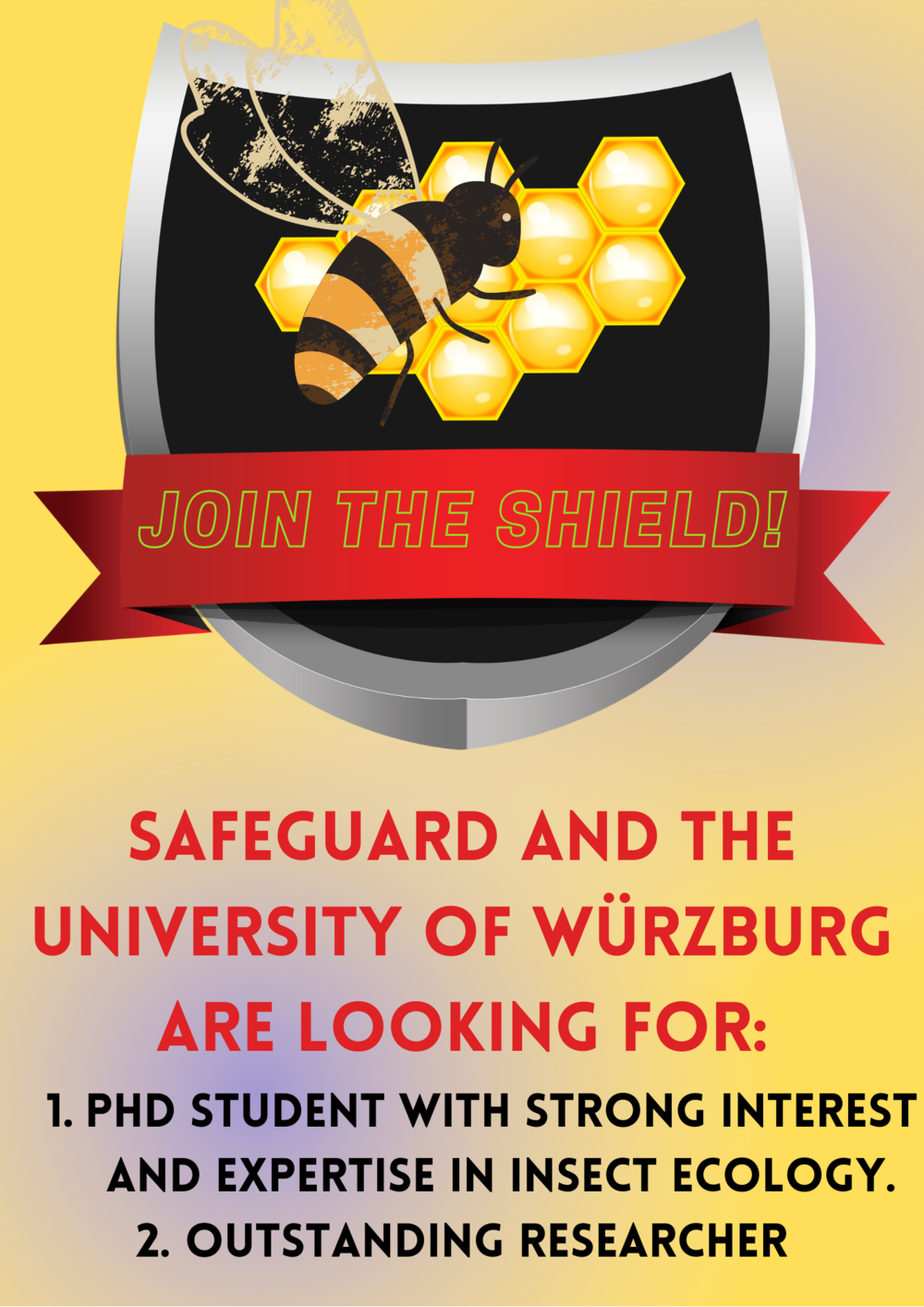pan-european assessment, monitoring, and mitigation of stressors on the health of bees
Join the SAFEGUARD shield
Wild pollinators are a key part of European biodiversity and provide a wide range of benefits to crops, wild plants, and human wellbeing. In Europe and globally, wild pollinators are facing multiple threats, however, the full extent of declines, their complex causes, and the most effective ways to respond to them are not well understood. Safeguard brings together world-leading researchers, NGOs, industry and policy experts to substantially contribute to Europe's capacity to reverse the losses of wild pollinators. Safeguard will significantly expand current assessments of the status and trends of European wild pollinators including bees, butterflies, flies and other pollinating insects.

1. PhD position in Animal Ecology
Pollinator diversity and associated ecosystem services are at risk due to the combined pressures of global land use and climate change. That is why The University of Würzburg and SAFEGUARD are looking for a highly motivated PhD student with strong interest and expertise in insect ecology and landscape ecology.
The role will involve working individually, but also in close collaboration with European partners in interdisciplinary and international project field study sites across Europe. The PhD position will be located in the department of Animal Ecology and Tropical Biology, led by Prof. Dr. Ingolf Steffan-Dewenter.
The successful candidate will also join the SAFEGUARD team, consisting of researchers, NGOs and policy experts from 25 partner organisations which aim to reverse the losses of wild pollinators.
For more information and to apply, please see the job advert.
2. Young Investigator Group in Global Change Ecology
Global environmental change has tremendous impacts on biodiversity and ecosystem functionality, but interactive effects and underlying mechanisms of climate and land use change, invasive species, pollution and overexploitation of ecosystems are little understood. That is why The University of Würzburg and SAFEGUARD are seeking an outstanding researcher to establish a young investigator group and develop an innovative research program on global change ecology of insects.
The successful candidate will be working in an interdisciplinary and international research environment with strong expertise in insect research, excellent laboratory, field, modelling, GIS and AI infrastructure. Furthermore, he will have the opportunity to cooperate in ongoing and shape emerging research programs.
The Young Investigator Group will be located at the Department of Animal Ecology and Tropical Biology, led by Prof. Dr. Ingolf Steffan-Dewenter.
For more information and to apply, please see the job advert.